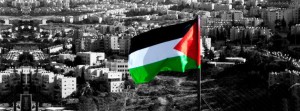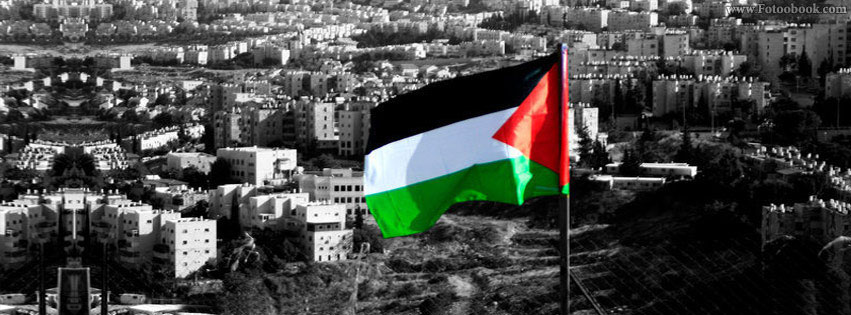 The Cairo Institute for Human Rights Studies (CIHRS) expresses its deep concern regarding the wave of violence taking place in the Occupied Palestinian Territory (OPT) and Israel since 2 October. On several occasions, CIHRS and other Arab and international NGOs have warned that the conditions under which Palestinians live, and the absence of serious negotiations that rely on numerous UN resolutions, would lead to such an outburst. In that sense, the events of the past two weeks have come as no surprise. CIHRS also fears that as long as the ongoing plight of Palestinians under occupation, in particular in illegally annexed East Jerusalem persists, without prospects of a serious solution based on International law and justice, Palestinian youth will continue to want to take the law into their own hands.
The Cairo Institute for Human Rights Studies (CIHRS) expresses its deep concern regarding the wave of violence taking place in the Occupied Palestinian Territory (OPT) and Israel since 2 October. On several occasions, CIHRS and other Arab and international NGOs have warned that the conditions under which Palestinians live, and the absence of serious negotiations that rely on numerous UN resolutions, would lead to such an outburst. In that sense, the events of the past two weeks have come as no surprise. CIHRS also fears that as long as the ongoing plight of Palestinians under occupation, in particular in illegally annexed East Jerusalem persists, without prospects of a serious solution based on International law and justice, Palestinian youth will continue to want to take the law into their own hands.
The Presidential Statement proposed by France at the United Nations Security Council, on October 18, to reaffirm the need to protect the religious status quo, as well as the Palestinian call to deploy international protection for civilians in the city, were first steps in the right direction. These efforts were cut short by the United State’s policy of Israeli Exceptionalism which lies in direct opposition to its stated goal for regional stability and peace, and its declared commitment to UN Charter principles as expressed by President Obama’s remarks at the General Assembly last September. This is just another example on how the international community continues to fail Palestinians’ desire for freedom and dignity.
Since 2 October, more than 61 Palestinians, the overwhelming number of whom are below 20 years old[1]have lost their lives as a result of extrajudicial killings, and excessive use of force during demonstrations, including through the use of live ammunition. Palestinians are protesting against systematic and widespread discrimination, including the colonial policies in Jerusalem that have disfigured the culturally diverse nature of the city.
So far, the popular uprising on both sides of the green line[2] has been overwhelmingly characterized by demonstrations that have led to over 4.570 injuries by gunshot wounds or tear gas suffocation[3], and more than 1.003 detentions and arrests.[4]
Along with demonstrations, the events have shown a pattern of Palestinian youth attacking soldiers and settlers with white weapons, specially knives. In many cases the alleged perpetrators have been shot dead, in a few cases the suspects have been injured by several live bullets. CIHRS believes that all attacks on all civilians are condemnable acts that require to be redressed through legal means. Practices of segregation and oppression of Palestinians caused by the occupation policies are leaving few options for youth other than to be pushed towards committing radical acts.
Moreover, Human rights organizations have documented several cases of Palestinians seemingly shot without posing a threat.[5] This policy of extrajudicial killings, and the disproportionate response to Palestinian acts, reflects the current Israeli governments practices of dehumanization of Palestinians, where individual acts constitute imminent threats that need to be responded to with disproportional force and collective punishment of an entire population.
Consequently, the Israeli government has validated a “shoot to kill” policy for security forces[6]. andIt later decided on several measures of reprisals against Palestinian Jerusalemites.[7] These measures included blocking Palestinian neighborhoods in Jerusalem with hundreds of cement blocks and tens of checkpoints. The Israeli government also announced measures of home demolition belonging to families of alleged perpetrators, with prohibition to rebuild, and evictions of these families from the city. These measures coupled with inciting speeches from political figures against inhabitants of the city are spreading a climate of terror among civilians that hinder their ability to leading ordinary lives. Israeli Prime Minister’s declaration on 20 October blaming the Holocaust on Palestinians, is an extension of the demonization of the legitimate aspirations of Palestinians for dignity and freedom.
Collective punishments are prohibited by international customary law and may amount to war crimes[8].Furthermore, in conducting law enforcement activities, the occupying power is under obligation not to resort to the use of live except in cases of absolute necessity, and in respect of principles of proportionality and precaution.[9]
The root cause of this situation is undoubtedly the systematic failure of the international community to bring an end to the ongoing and persistent grave breaches of international law by Israel, the occupying power. Israel’s policies have brought major and most likely irreversible shifts of realities on the ground that are undermining any possibility for self-determination of Palestinians in their independent state.
This situation is particularly crystallized in Occupied Jerusalem. Since 1967, demographic policies, discriminating against Palestinians, have been international condemnation that remains unsanctioned.
When in 1980 Israel passed the basic law “Jerusalem, Capital of Israel”, the Security Council voted resolution 478in which it censured “in the strongest terms the enactment by Israel of the “basic law” on Jerusalem” and “determines that all legislative and administrative measures and actions taken by Israel, the occupying Power, which have altered or purport to alter the character and status of the Holy City of Jerusalem, and in particular the recent “basic law” on Jerusalem, are null and void and must be rescinded forthwith”.[10]
35 years later, Israel continues to enforce Israeli law on Jerusalem, closing Palestinian institutions and expelling Palestinian political representation out of the city. Almost 50% of the more than half a million settlers are in East Jerusalem, either in the outskirts of the city or within Palestinian neighborhoods.
The “center of life” policy treating Palestinians of the city as immigrants, coupled with the prohibition of family unification, the high rates of taxation, and the legal and regulatory labyrinth in which Palestinians are drowned to prove their presence in the city, have all been measures of forcible displacement of Palestinians. These practices are coupled with an urban planning policy that systematically and gravely denies Palestinians their right to housing, basic services, and minimum standards of decent life.[11] In addition the separation wall and checkpoints are cutting the city off its geographical surroundings and adding to the daily plight of its population.
Reports, resolutions, and statements from the UN bodies and agencies, and high-level decisions, including diplomatic condemnations have underlined the international consensus about the illegality of Israeli practices in Jerusalem over the years. This includes the meetings of the High contracting Parties of the 4th Geneva Convention, 1999 , and the ICJ Wall Opinion, which considered that Israeli settlements have been established in breach of international law. This mass produce of documentation has been ignored by consecutive Israeli governments, which have continued their oppressive measures unabated. The 300,000 Palestinians in the city are abandoned to daily humiliation, denial of basic rights, and displacement from their homes.
The failing of the French proposal and the Palestinian call in the Security Council for international mechanisms to monitor violence in the holy basin of Jerusalem, amounts to indirect acquiescence to Israel’s acquisition of land by force formally prohibited by international law. It also gives a green light to the Israeli government to pursue colonial activities, and a license to kill Palestinian civilians at will.
The international community’s inaction is no longer acceptable. In order to prevent further violence and bloodshed, the law must be upheld. Short termed measures to buy more time for the status quo, will result in further undermining of the basic rights of Palestinians, and will not bring peace and stability to the region.
In the case of occupied East Jerusalem legal obligations are clear. The International community is required to immediately implement Security Council resolution 242, which obliges Israel to withdraw from the territory it occupied in the aftermath of 1967 war. Accordingly, we call on UN institutions and the international community to take concrete steps to:
- Demand the immediate withdrawal of Israeli forces and settlers from the entire territory of Occupied East Jerusalem and hand authority over to the Government of the State of Palestine.
- Investigate and prosecute all international humanitarian and human rights law violations committed against Palestinians, including extrajudicial killings, destruction, and confiscation of private property, and to provide appropriate remedies to the victims.
- Dispatch international forces that will secure the withdrawal phase and protect Palestinian civilians in the interim.
[1] Numbers of the Palestinian health Ministry, available at: http://www.moh.ps/?lang=0&page=3&id=2925
[2]The green line, or the armistice line is the delimitation between the territory that Israel claimed sovereignty on post 1947 war, and territory that remained under Arab control until occupied by Israel in 1967.
[3] Numbers of Palestinian Ministry of Health )see supra footnote 1)
[4]Numbers of The Palestinian Prisoners Club published by Zamn Press : http://zamnpress.com/news/85755
[5]See the joint press release from human rights organizations working in Israel and the Occupied Palestinian Territory: http://www.btselem.org/press_releases/20151014_summary_execution_joint_statement, see also B’tselem press release about allegations of extra judicial killings: http://www.btselem.org/press_releases/20151015_suspected_shooting_at_alun_and_sidr
[6]See Israeli Prime Minister’s Office Statement of 24/09/2015 available at:
http://www.pmo.gov.il/English/MediaCenter/Spokesman/Pages/spokeJerusalem240915.aspx
[7]See Israeli Prime Minister’s Office Statement of 14/10/2015 available at:
http://www.pmo.gov.il/English/MediaCenter/Spokesman/Pages/spokecabinet141015.aspx
[8]ICRC, Customary IHL, Rule 103, available at:
https://www.icrc.org/customary-ihl/eng/docs/v1_rul_rule103
[9]See Diakonia, Law Enforcement under Occupation: The Case of Willful Killings in the West Bank August 2015 available at:
[10]UNSC res. 478 (1), (3), 20 August 1980, available at:
http://unispal.un.org/UNISPAL.NSF/0/DDE590C6FF232007852560DF0065FDDB
[11]United Nations Special Rapporteur on the right to adequate housing during her visit to Israel and OPT, February 2012 available at:
http://www.ohchr.org/EN/NewsEvents/Pages/DisplayNews.aspx?NewsID=11817&LangID=E#sthash.5lL3wYvt.dpuf
Share this Post

